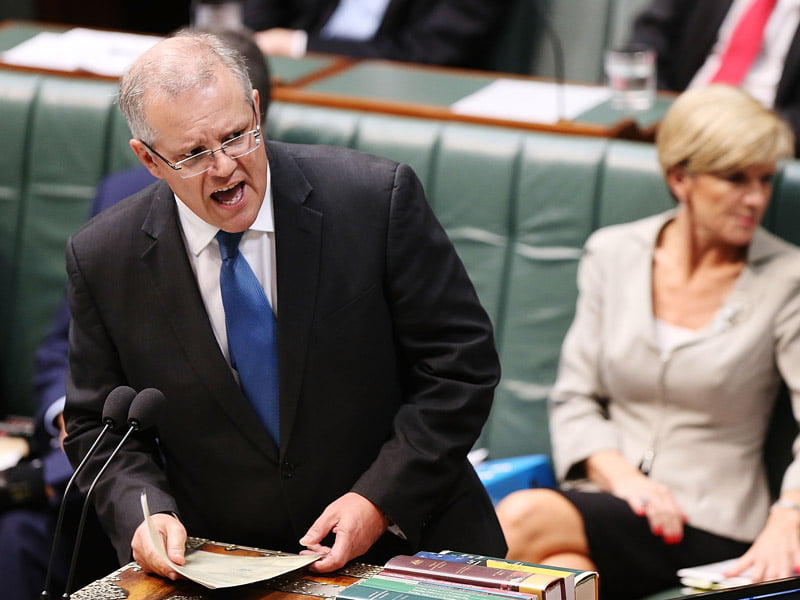The Deregulation Taskforce will be brought under the Prime Minister’s department as the government looks to “modernise” regulations to keep in touch with new technology, with an emphasis on blockchain.
The taskforce was launched in August last year to “identify and remove unnecessary barriers to investment, with a focus on sectors and activities which have the most to gain”. It currently sits within the Treasury, led by Treasurer Josh Frydenberg and chaired by Michael Brennan.
At the Committee for Economic Development of Australia’s State of the Nation forum on Monday morning, Prime Minister Scott Morrison said the government would focus on further deregulation as a way to stimulate economic growth following the pandemic.
“This will further drive a whole-of-government approach to how regulatory policy is prosecuted,” Mr Morrison said.

A key focus of the taskforce will be identifying current laws and regulations that have not kept pace with technological developments, Mr Morrison said.
“COVID has shown our laws have not kept pace with digital technology when it comes to business communications – for example, by requiring business to use paper for storing information, instead of using electronic delivery or adopting new technologies like blockchain. These laws are ripe for modernisation,” he said.
“This applies to the culture of regulators as much to the content of regulations. I’m sure anyone in business would understand that point.
“This crisis has shown what can be achieved when regulators are pragmatic and responsive, solving problems without compromising safeguards.”
Speaking during Question Time on Monday, Industry Minister Karen Andrews reaffirmed this commitment to blockchain.
“As the technology minister, I’m particularly pleased that digital technology has been identified as an enabler to simplify and speed-up government interaction with business and industry,” Mrs Andrews said.
“It’s very clear that our laws have not kept pace with digital technology, and particularly that is the case with business communications,” she said.
“We need to make sure we are embracing and adopting those new technologies, particularly blockchain. And we need to streamline how governments at all levels do business to bring us in line with what the community’s expectations are of us.”
The Productivity Commission will work with the now permanent National Cabinet to come up with a “more comprehensive Federation-wide deregulation agenda”, while Mr Brennan will brief the cabinet on its next meeting about key priority areas.
This taskforce has already been successful in simplifying business registers, streamlining export documentation and making it simpler for sole traders and micro-businesses to employ people, Mr Morrison said.
“Successful deregulation has increased competition and economic efficiency, raising productivity and, ultimately, supporting jobs and wages. The next phase of the taskforce work will zero in on areas to assist COVID-19 economic recovery,” he said.
Assistant Minister to the Prime Minister Ben Morton is in charge of the taskforce, and will be taking lessons from how the public sector responded to COVID-19.
“I have asked assistant minister Morton to report back on ‘lessons learned’ in recent months, highlighting cases where governments and regulators have responded to the COVID crisis and its economic fallout with urgency and commonsense,” Mr Morrison said.
The Productivity Commission has been directed to inform and help develop the “deregulation agenda”.
Do you know more? Contact James Riley via Email.

